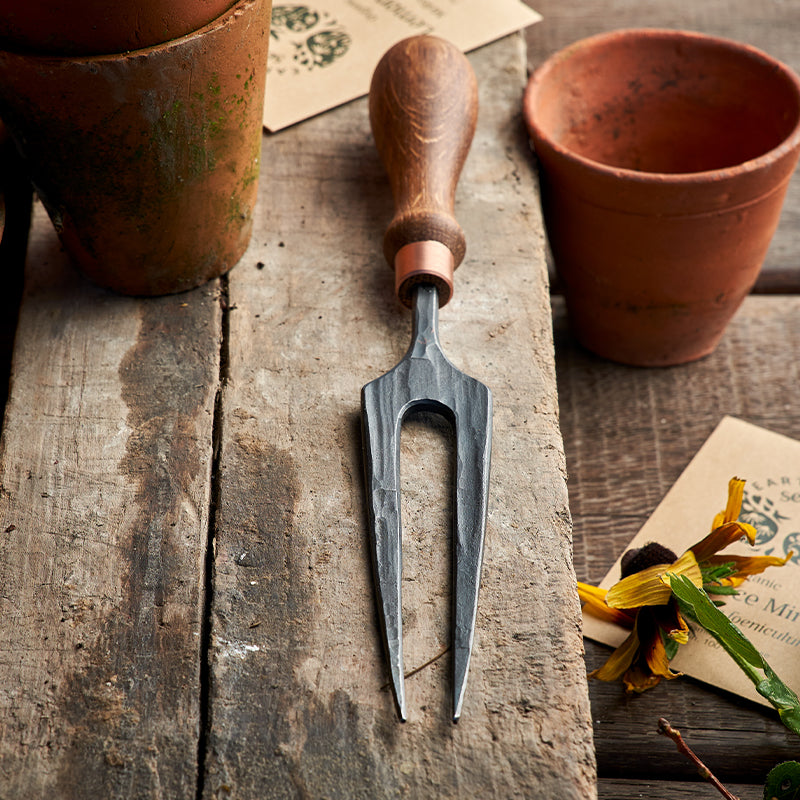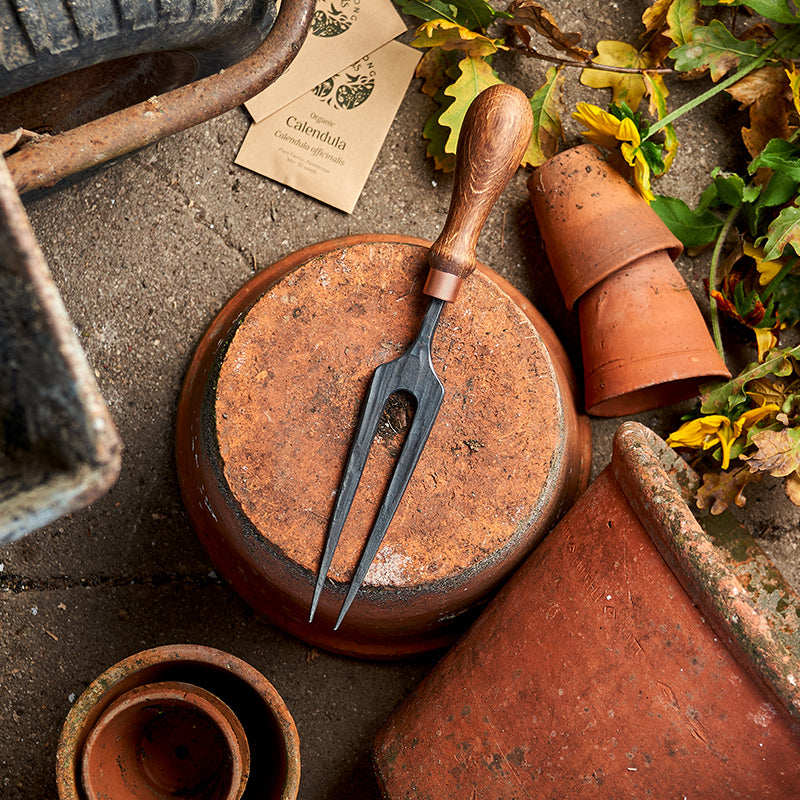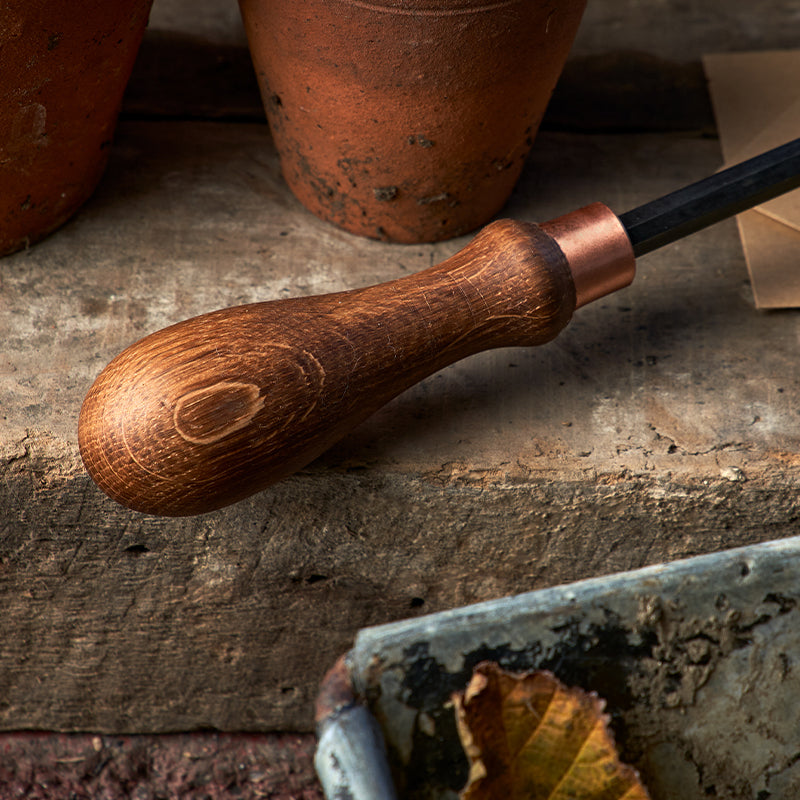





LONG WEEDING FORK
TWO PRONGED WEEDING FORK
Hand forged 304 stainless steel / Copper Ferrule / English Oak handle
Total length - 32cm (handle - 13cm)
Fork - 15cm x 4cm
WHAT IS A WEEDING FORK ? Used for removing deeply rooted weeds that need to be removed from beds. It can also be used to aerate the soil or mix compost into the soil. The design of the weeding fork makes it very comfortable to use without straining the wrists.
MATERIALS : All of our garden tools are forged from an off-cuts of 304 stainless steel that is a by-product of our kitchenware production. After forging some products we are often left with short pieces of steel that would otherwise be recycled ... we forge these into new tools - to reduce scrap waste and to reduce the need to recycle saves energy (and also makes beautiful garden tools).
The inspiration for our range of garden tools comes from many visits to the ruins at Mells Ironworks in Somerset and from a sketch found in the only known catalogue to have been printed in 1884 of James, Isaac & John Fussell Ltd.
A BIT OF HISTORY : In 1744 James Fussell of Mells, Somerset leased a plot of land from the local squire . This land was to be used to establish a mill ‘for grinding edge tools and forging iron plates’ – The Mells & Nunney Ironworks works was born. Up until 1895 the Mells site produced a huge number of forged edge tools ranging from spades and shovels to scythes and garden hoes.
The ironworks site is still visible today – a collection of ruins lining the banks of the fast flowing Mells stream deep in the Wadbury Valley. Crumbling walls, rotten water wheels and moss covered sluice gates still give enough of an idea to the layout of what was once a thriving west country tool makers.
FOUNDED IN HISTORY | FORGED IN DORSET
TIP : Each tool is individually hand forged and as such is unique (and may vary a little from the photo).
The blade and copper ferrule will age over time with use - this is quite natural and something to be embraced . Wash after use and apply oil if unused for a long period of time. The handle should be oiled with Linseed oil at least once a year.
